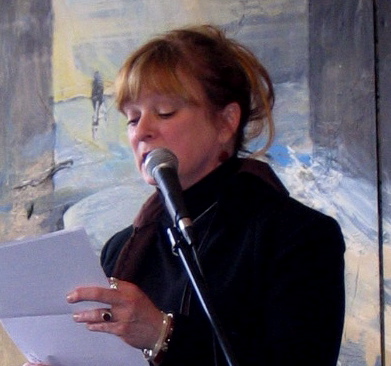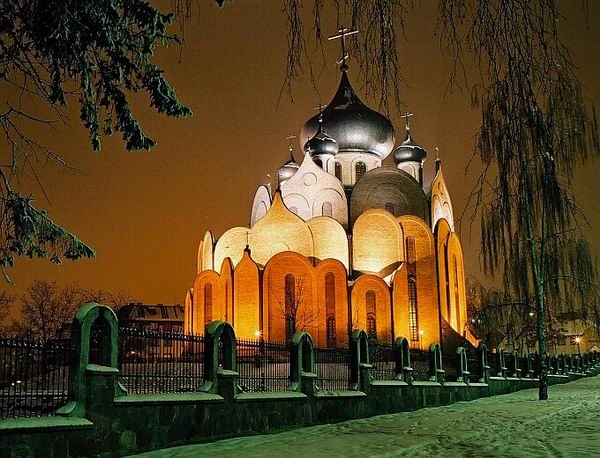The poems of three Polish-American poets appear in the current issue of
War, Literature, and the Arts, a national journal produced at the US Air Force Academy.
The poems talk about war, how it effects those who suffer through it and those who know it through the memories of others.
John Minczeski's "Auschwitz" from his sequence "The Camps"
AuschwitzWinter lasted forever
for those never heard from again,
their daily ration of coal as meager
as a bowl of thin soup.
But this October, in the suburbs of Kraków,
the air crisp as celery, the sky
sparks over maples that do not turn red;
horse-drawn carts creak on the side of the road
under loads of turnips and rutabagas
as they have for a thousand years.
A kiosk at the entrance displays books
in English and Polish, posters, a rack
of picture post cards. Get what you need here,
a fellow tourist visiting a second time says,
you won’t find another gift shop
anywhere on this tour. We get
two rolls of Kodachrome, a bottle of water.
Should I know what I’m doing here,
standing at the pit of history under Arbeit Macht Frei
as Joan frames it in the camera? Other tourists,
fresh from the orientation movie,
flood through. I am unable,
even now in the privileged future,
to go in without her.
Looking down cypress-lined boulevards
away from the barbed wire, the brick barracks
could be campus dorms. It is too easy to imagine
gerbera daisies by the front doors, rows of rustcolored
zinnias and dahlias gracing the road
to crematorium #1.
Trains pulled in hourly. Smokestacks
pumped around the clock with lubricated precision.
Prisoners, in striped pajamas worn to zero,
took their suitcases. Hush,they said in Polish.
Take this hanger—you must remember its number.
Your clothes will be disinfected and returned
when you finish your shower.
Tooth brushes
clothes brushes
shaving brushes
Shoe brushesBaby shoes
baby bottle nipples
entered in ledgers
with so little time in our lives
pitchers
wash basins
eye glasses
crutches
prostheses
spent cans of Zyclon B
catalogued and examined
and under glass.
Told to label their suitcases,
they wrote in large, block letters
MARIE KAFKA
OTTO ISRAEL SCHÖNHOF
WEISS, GEORG
the tour keeps moving
I cannot copy more.
_________________________
To read the rest of John Minczeski's poem "The Camps" (published in
Letter to Serafin, University of Akron Press), please click
here.
Lisa Siedlarz's poem about the fighting in Afghanistan Tea with EldersDawn breaks with the stench of shit lagoon
where excrement is dumped. A dust devil
whips by portajohns, hot winds of diesel
and disinfectant. Our Terp calls it a Djinn
of free will that whispers give in to this evil.
Today we drive through minefields
dressed in pounds: helmet , seven;
ceramic body armor, twenty-two;
load-bearing vest packed with batteries,
bullets and grenades, thirty. We are walking
bombs with elephant grace.
The desert is littered: wrecked tanks,
trucks, silver hulls of Russian fighters.
Mosques and schools are rubble. Stucco
and mudbrick huts huddle between walls.
Our boots whoof up knee-high clouds.
Everything is dust in Ass-Crack-istan.
Children with fly-covered smiles spill
out chanting kalam. Pens we hand out
Are novelties in the villages.
The village elder greets us with a girl
whose mostly bald head is covered
in oozing sores. We give iodine, gauze.
The elder touches his heart, invites us in.
We peel off our armor and sit on the floor.
He presents Khosgovar, Iranian cola,
hocks spit into a spotted glass, wipes it on
his robe. Antifreeze jugs are ice buckets.
We raise our glasses. We want Americans
to stay, he says through our terp, if you leave,
we will have more war.
The old man takes my arm, How to show
my love? I take his hand in mine, place mine
on his shoulder, tell him thank you.
__________________________
"Tea with Elders" originally appeared in her chapbook
I Dream My Brother Plays Baseball, published by
Clemson University Digital Pressn.
To read my blog about this book, please click
here.
John Guzlowski's poem about the Nazi Blitzkrieg against PolandLandscape with Dead Horses 1.
War comes down like a hammer, heavy and hard
flattening the earth and killing the soft things:
horses and children, flowers and hope, love
and the smell of the farmers’earth, the coolness
of the creek, the look of trees as they uncurl
their leaves in late March and early April.
You smell the horses before you see them.
2.
Horses groan, their heads nailed to the ground
their bodies rocking crazily, groaning
like men trying to lift their heads for one
last breath, to breathe, to force cold air
into their shredded, burning lungs.
For these horses and the men who rode them,
this world will never again be the world
God made; and still they dare to raise their heads,
to force the air into their shredded lungs.
3.
Look at this horse. Its head torn from its body
by a shell. So much blood will teach you more
about the world than all the books in it.
This horse’s head will remake the world for you—
teach even God a lesson about the stones
that wait to rise in our hearts, cold and hard.
4.
In the end Hitler sat in his cold bunker
and asked his soldiers about his own horses,
“Where are they?” He asked, “Where are my horses?”
And no one dared to tell him, “They are dead
in the fields with the Poles and their horses,
bloated with death and burning with our corpses.”
__________________________
Several other WWII poems by John Guzlowski including "Bicycle in Wartime" and "Fear" appear in the online version of War Literature and the Arts. Please click
here.


